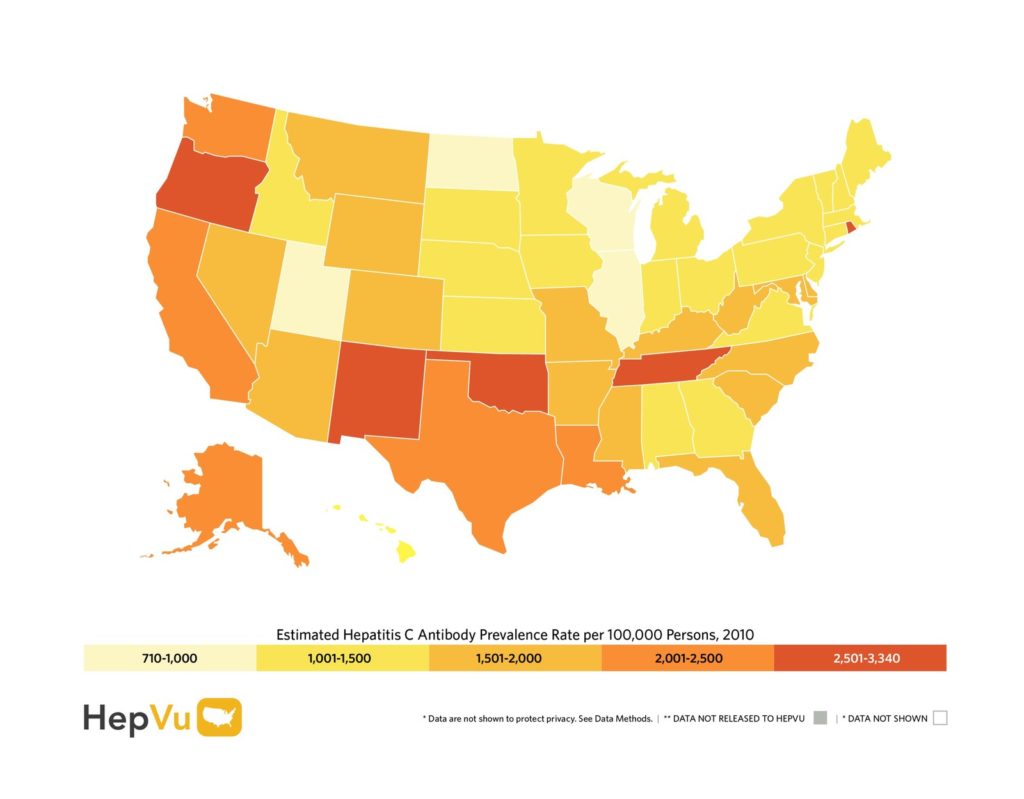
Tennessee has one of the highest rates in the nation of hepatitis C, an infectious disease that predominantly affects the liver and is killing far more Americans than any other.
A new interactive map shows that 2.5% of all Tennesseans had or currently have HCV, as it’s known, which is twice the national average.
Epidemiologist Patrick Sullivan led the scientific team behind the HepVu map at Emory University. He says the information should be used to increase public awareness and screenings for the disease.
“The process would be that if someone’s screened and has antibodies, then they would have further evaluation to see if they have a chronic infection,” says Sullivan. “And if so, they could be moved into treatment.”
Yet moving people into treatment isn’t easy. Many don’t know that they’re HCV-positive. While today the disease most commonly spreads among injection drug users, baby boomers are actually five times more likely to be infected.
The virus is deadlier than the next 60 most infectious diseases combined — including HIV and tuberculosis. But awareness alone won’t curb the problem.
Dr. Carolyn Wester, who heads the Tennessee Health Department’s Viral Hepatitis Program, says the price of treatment is a major obstacle. “As long as the medications are as expensive as they are … the access is going to be limited, due to the price tag,” she says.
Wester is referring to what she calls “game-changing” new drugs. The treatment is much shorter, and significantly more effective. But it now starts at $84,000 — or $1,000 per pill.
The state’s Medicaid officials say treating just their recipients with HCV would run them over $1.6 billion, more than double what they spend on all drugs.
Gilead Sciences, the California lab that makes the anti-viral drugs, helped finance the state-by-state map. A spokesperson tells WPLN the data will give policymakers and public health professionals a better understanding of the burden of hepatitis C in their communities.
But the company, which underwent a Congressional probe for its pricing of the HCV treatment, shows no signs of bringing down the cost.


